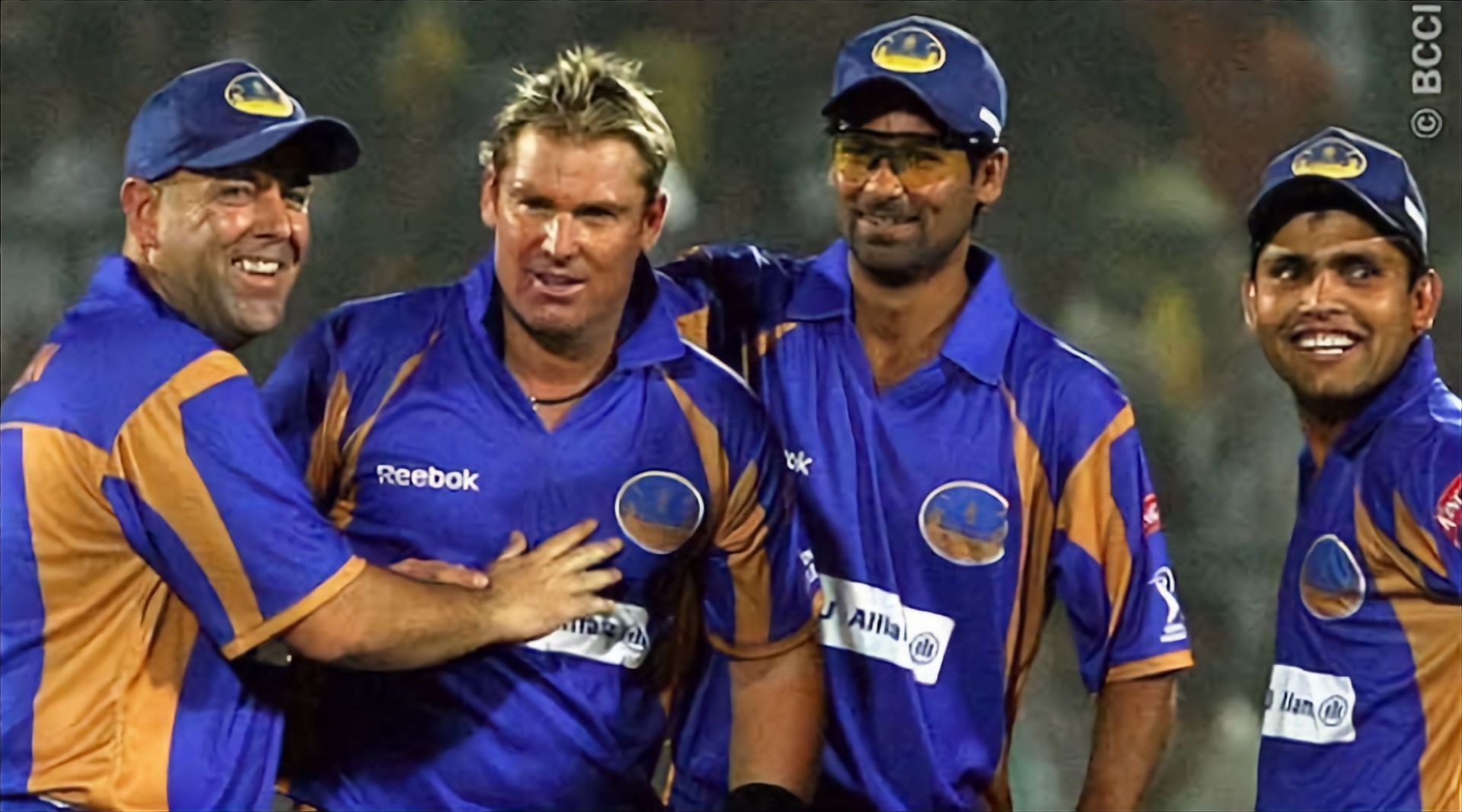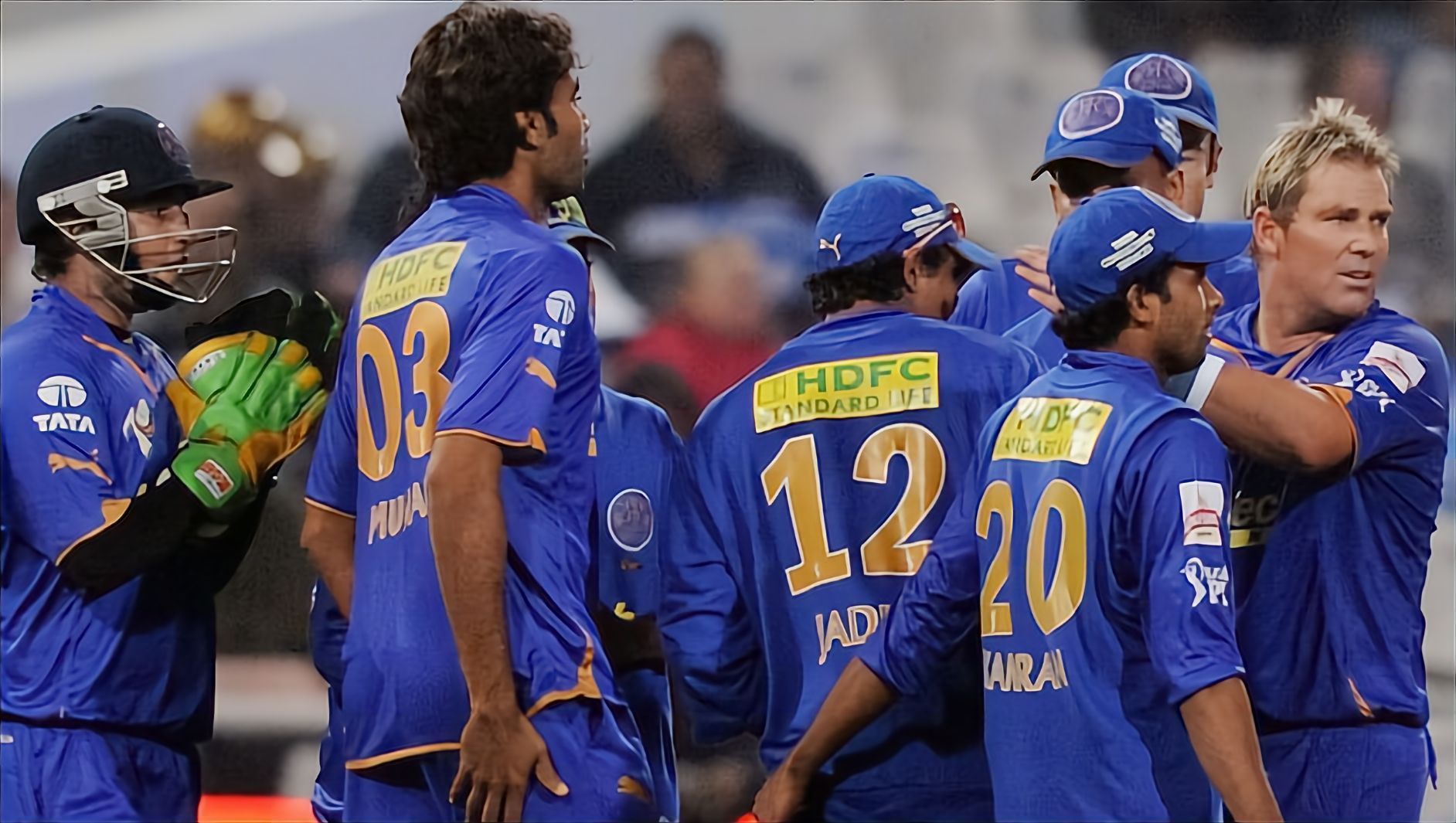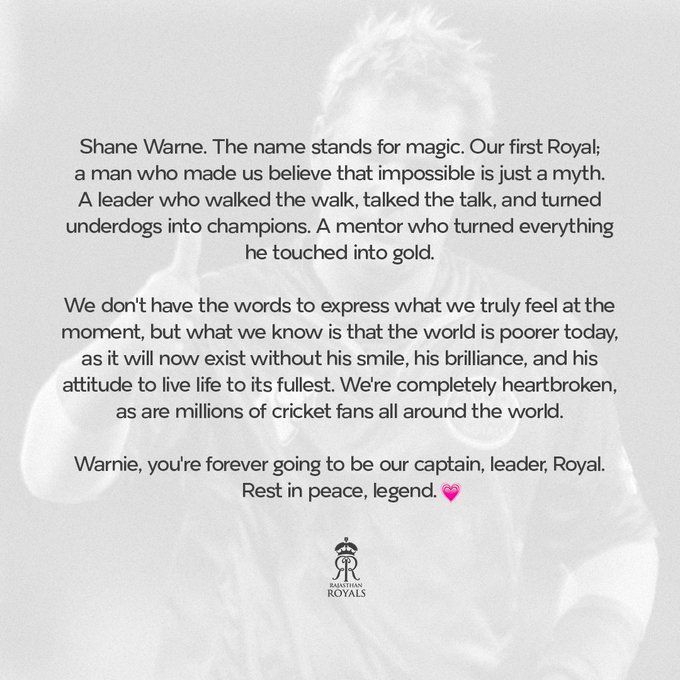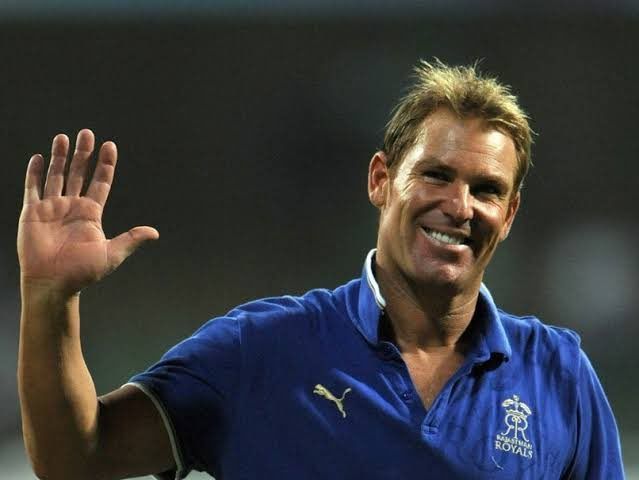
"He gave the new ball to Yusuf Pathan to bowl against Gilchrist, I was shocked" - Mohammad Kaif recalls fairytale IPL win under Shane Warne
![Mohammad Kaif, Darren Lehmann and Kamran Aklmal celebrate one of Shane Warne's wickets in IPL 2008 [Credits: BCCI]](https://statico.sportskeeda.com/editor/2022/03/1093a-16464595182204-1920.jpg?w=500)
Shane Warne’s shock death on Friday has got everyone reminiscing about his mastery from years past. For Indian fans, one of Warne's most indelible memories is that of him leading a seemingly lightweight Rajasthan Royals (RR) side to the IPL title in the inaugural edition of the competition.
While MS Dhoni is regarded as one of the most tactically strong minds – if not the strongest – going around, those who were part of the RR side in 2008 believe Warne was no less. The 45-odd days in 2008 were an experience of a lifetime for many of them, filled with numerous life lessons.
One of the members from that team was former India batter Mohammad Kaif, who even got the privilege to get to know Warne over the years. In an exclusive chat with Sportskeeda, Kaif hailed the Aussie legend as the cornerstone of RR's journey from being underdogs to IPL champions.
Lauding his ability to turn even inexperienced guys into match-winners, the 41-year-old credited Warne for employing tactics that were unprecedented in T20 cricket back then.
"It is a story of underdogs," Kaif said. "I was the captain of Uttar Pradesh when we won the Ranji Trophy in the 2005/06 season. And UP didn’t have any big names, so I love being an underdog. And this underdog story fits perfectly for Shane Warne."
"Because when the whole world was writing us off, to overcome a bad start and win the IPL as underdogs set an example for others," he added. "It proved to the world that it’s not about the big names all the time. It’s how you approach the game and cover all the areas tactically, while backing the players and giving them freedom."
Swapnil Asnodkar, Rajasthan's uncapped opener from Goa, gave the team brisk starts in the powerplay and finished the tournament with 311 runs at an average of 34.55 and a strike rate of 133.47. Meanwhile uncapped pacer Siddharth Trivedi, bowling the difficult overs, scalped 13 wickets at an economy rate of 8.31.
Getting the best out of everyone is the hallmark of a true leader. Not surprisingly, Kaif spoke highly of Warne’s man-management skills and attention to detail, asserting that the leg-spin great knew exactly how to get someone to play a particular role to perfection.
"He was very clever, very shrewd, very attacking, chirpy, talkative – he would not relax even for a single ball," Kaif, who himself scored 176 runs in IPL 2008, said. "I remember, for the first time, someone talking about the T20 format in detail. When bowlers used to go back to their mark, he would always go up and tell them to think about getting the wicket and bowling their best ball. That was his mindset; he would tell every single bowler to think wickets rather than bowling dot balls or containing the batters."
"I have worked with IPL teams, and in the bowling meetings, the talk is always about bowling short or wide outside off stump and conceding a single," Kaif added. "But he would always ask his bowlers to get the best batter out, because he knew that would eventually seal the game for us. And when the captain says this, your confidence goes up as a bowler and you’re not worried to even get hit for three sixes. This is something that many captains don’t do in T20 cricket."
Like a side-kick playing in the shadow of a dynamic one and yet making headlines at the end of the day, Shane Warne’s Rajasthan went about their business quietly even as Sourav Ganguly’s Kolkata and Rahul Dravid’s Bangalore hogged the limelight. But unlike the Indian stalwarts who were relatively new to T20 cricket, Warne had already learnt the tricks of the trade while representing county sides in the shortest format.
"That Rajasthan Royals team wasn’t the strongest on paper and we didn’t have a great start – we lost the first match badly," Kaif said. "And then we came back, all because of all his experience. He had spent lots of years on the county circuit, playing the shortest format and, of course, being the star for Australia."
"So he knew exactly how to play the shortest format – the bowling changes, how to use players in particular roles, he would be talking to them all the time," the former Indian batsman added. "He didn’t have any specific time for meetings; he will be chatting with you on the flight, on the bus while travelling to the match."
RR defeated MS Dhoni’s Chennai Super Kings (CSK) by three wickets in a last-ball finish on 1 June 2008 to be crowned the first-ever IPL champions.
A master tactician

The two standout performers for RR in IPL 2008 were Shane Watson and Yusuf Pathan. While Watson was their leading scorer with 472 runs at an average of 47.20, Pathan smashed 435 runs at a whopping strike rate of 179.01. But Warne’s genius shone particularly in the way he utilized their part-time bowling.
Kaif revealed that it was always Warne's plan to introduce Watson in the death overs and get him to bowl bouncers at the lower-middle order batsman. Bringing mid-off and mid-on into the 30-yard circle, opposition batters were challenged to take on the long square boundaries at the SMS Stadium in Jaipur. And more often than not, they failed to do that.
"I remember how he used Shane Watson’s bouncers," Kaif said. "He would bring him into the attack at the death, with the lower-middle order at the crease, and ask him to bowl bouncers. He knew tailenders aren’t capable of playing bouncers. With big boundaries in Japiur, he would bring mid-off and mid-on up, and ask the batters to take on the square boundaries."
"He would keep two fielders each at deep point and square leg, one at third man, and batters would inevitably hit the short deliveries there," Kaif went on. "I have learnt a lot from him – how to captain a side, how to be tactically strong. When I captained my UP team later on, I was using all these tactics – attacking, showing intent, always going for wickets."
Watson ended up scalping 17 wickets at an economy of 7.07, thus winning the Player of the Tournament award. Pathan, on his part, picked up just eight wickets in the season. But he would often be summoned to bowl with the new ball, a tactic unheard of back in the day.
Recalling it as if it happened just yesterday, Kaif spoke in detail about one game - RR's third match of the season - where Yusuf Pathan was asked to bowl to Adam Gilchrist in the powerplay. Needless to say, the ploy left everyone - including Rajasthan's own players - flummoxed.
"When we went to play the Deccan Chargers, he gave the new ball to Yusuf Pathan to bowl against Gilchrist. I was shocked," Kaif said. "'Boss, how is Yusuf Pathan bowling?' I asked. But he knew Gilchrist very well, he knew Gilchrist liked the fast ball but might struggle against off-spin. And Yusuf got him out in that game."
There was a method to Shane Warne's madness, or rather to his magic. He instilled self-belief in his players while making them buy into his uncanny philosophy. The lesser-known Indian players, whom everyone considered to be the soft underbelly, were molded into match-winners as Warne assigned them specific roles.
"He had that eye for talent; he just knew which player was for the long run, which player might be bogged down by pressure, which player was for the big matches," Kaif said. "He would always talk about winning the big games, handling the pressure of knockouts – he would urge us to be big-match players. He would always talk to the uncapped players, motivate them, and assign them specific roles."
"Siddharth Trivedi would bowl cutters; Munaf would bowl wicket to wicket; Shane Watson would bowl bouncers; if there was a leftie opener, he would bring on Yusuf Pathan. He would bring himself on after the powerplay; Jadeja was told to bowl wicket to wicket and not try to turn the ball. He also knew that if the Indian players fired, we’re going to win the IPL."
When workload management was years away from being a focus area, Shane Warne ensured that his protégés regularly switched off from the intensity of the game. Instead of addressing the team in the conference room, he would discuss strategies with them over drinks or while chilling by the pool.
"He would love to relax at night; he would have a couple of drinks; he would call all the young guys to parties," Kaif said. "So he brought that culture as well, which helped the players switch off from the game and not be harsh on themselves. He would take the likes of Jadeja and all to parties, make them listen to music, but there also, he would be talking about the game."
"He didn’t go to the gym that often, but he would sit by the pool and discuss strategies with someone, tell them what all to do the next day and stuff like that. There wasn’t a corporate style, he had his own style of working."
A player that Shane Warne really believed in during the formative years of the IPL was Ravindra Jadeja. Warne nicknamed Jadeja 'Rockstar', and he was right; today, at 33 years of age, the southpaw is one of the best all-rounders in world cricket.
“Shane Warne to me was a mentor, a coach, a captain, a friend” – Mohammad Kaif
![Shane Warner finished his international career with a mammoth 1,001 wickets and 4,172 runs [Credits: ECB]](https://statico.sportskeeda.com/editor/2022/03/4c7c8-16464592085807-1920.jpg)
Let’s admit it - all of us questioned the report when the news of Shane Warne passing away due to a "suspected heart attack" first broke. It was just that shocking. Warne, in fact, had himself expressed commiserations (via a tweet) over the demise of fellow Aussie cricketer Rodney Marsh just hours earlier.
Mohammad Kaif was in the middle of a workout session when he received the news. He just couldn't gather himself to lift weights after that.
"I was at the gym when one of my managers messaged me the news," Kaif said. "And I just could not work out after that; I lost all my strength to lift weights. I am numb, I don’t have words to express my feelings. It is very, very shocking."
Mohammad Kaif manned India’s middle order 125 times in ODIs, and also played 13 Tests. Alongside his 148 against the West Indies at Gros Islet, a notable achievement of Kaif's was never falling prey to Shane Warne.
On Australia’s 2004 tour of India, when the home batters struggled to get going, Kaif stroked fighting half-centuries in the Chennai and Nagpur Tests.
"I played against Shane Warne when Australia came here in 2004," he said. "I enjoyed some success against him – firstly, I didn’t get out to him and, secondly, I scored a couple of fifties in that series. Even though I had played a couple of ODIs against him, it was in 2004 that I had properly faced him and spent hours at the crease."
"So that was my first close meeting with him," Kaif went on. "And then he became Rajasthan Royals captain and I played under him. So Shane Warne to me was a mentor, a coach, a captain, a friend."
One thing Shane Warne wasn’t, however, was a conformist. Having bamboozled people for years with his craft and guile, he has once again caught us off-guard with his untimely passing.

